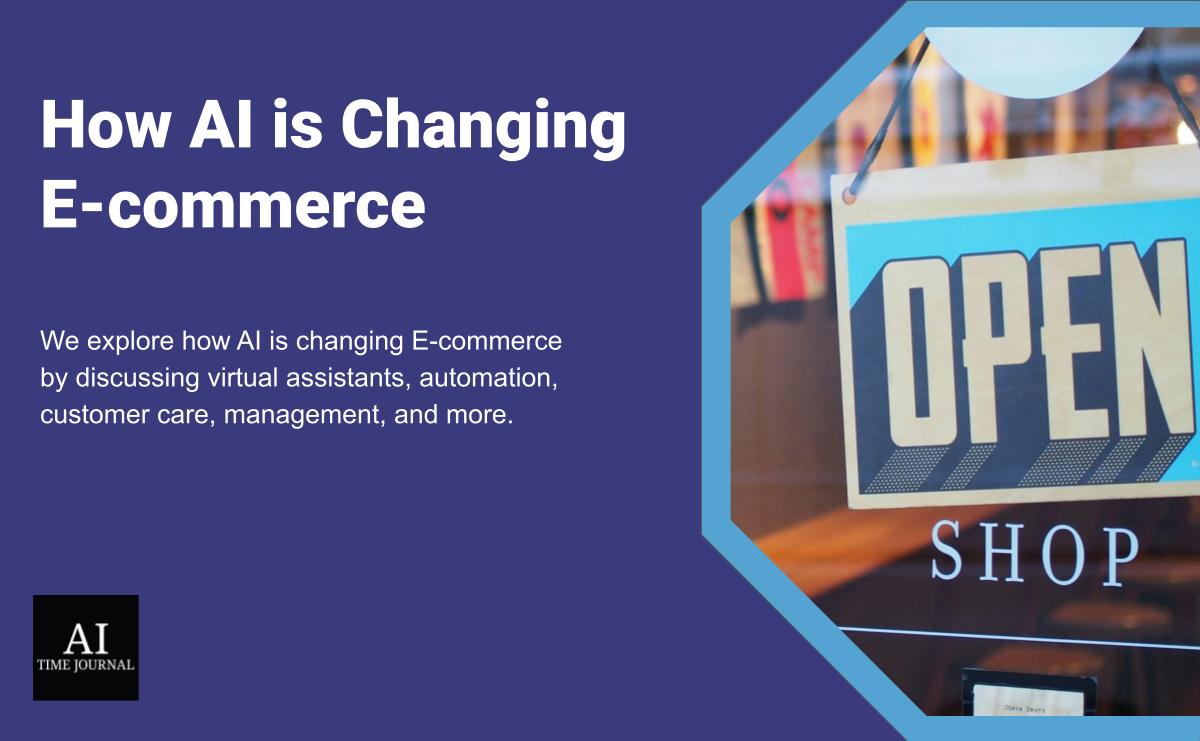
Artificial Intelligence has already created disruptions in numerous industries, most noticeably in E-commerce. Recently, Artificial Intelligence is being regularly used by retailers to optimize customer service, inventory management, and warehouse automation among many other uses. Business costs can be significantly reduced by incorporating AI in e-commerce in various ways, especially during challenging times.
The following article mentions a few examples of the advantages of Artificial Intelligence in E-commerce.
Chatbots and Virtual Assistants
One of the best uses of Conversational Artificial Intelligence is in the form of chatbots and virtual assistants that retailers can exploit. With the help of Natural Language Processing (NLP), chatbots and Virtual Assistants (VAs) can analyze and interpret spoken or written words, and formulate appropriate responses to guide customers. Machine Learning (ML) ensures that this software can perform predictive analysis of the data set accumulated, which in turn helps the algorithm predict future interactions more accurately, making chatbots and VAs increasingly efficient.
From the perspective of retailers, this is very cost-effective as additional manpower isn’t required to interact with customers. Customer care is also greatly improved as they can now receive any information in real-time with increasing accuracy with every use. Better customer care can help businesses build profitable long-term business-customer relationships. Additionally, Chatbots have many other effective uses throughout industries, not mentioned in this article.
As Conversational AI is becoming more and more mainstream, it is important to follow its trends so that businesses can stay ahead and incorporate these lessons into their development. Conversational AI Trends 2020 is an excellent starting point.
How Voice Commerce Is Dominating The E-Commerce Market Through AI also sheds light on the vast uses of Conversational AI in retail.
Automation
Automation is taking more or less every industry by storm. From healthcare to farming, integrating automation in industries has reduced operational costs significantly and also made many hazardous tasks easily possible with minimal human intervention.
A crucial advantage is an increase in overall productivity as automatic devices (I.e robots) substantially reduce the time needed to perform repetitive and strenuous jobs, such as refilling shelves, packaging products, transporting goods, searching for malfunctions, etc.
Additionally, this focus on automation will also help businesses to remove workers from hazardous environments (chemical factories) to more fulfilling positions. Thus, maintaining workers’ well-being too.
The benefits of automation in today’s workforce provide more insights into automation.
Efficient personalization and customer care
Most customers usually prefer offline shopping because of the help they can expect from sales employees of a business. Customers find such human interactions more welcoming and easy to decipher in comparison to them manually searching for this information online.
This is where AI-generated personalized recommendations come from. Online businesses can still profit and cater to customers by giving specific recommendations to individuals instead of grouping them and making generalizations.
Targeted advertising and personalization plays a big role in how data-driven businesses generate revenue. Through the unique combination of Machine Learning and Big data, hyper-personalization is allowing businesses to build strong business-customer relationships.
Levi’s AI-powered Chatbot is a prime example of how AI can help customers make good choices.
Better Management
Smart technology helps to manage inventory and other administrative tasks much more efficiently. With its advanced data analytic algorithms, AI can collect, analyze, curate, and predict outcomes more precisely than any average staff.
This is both cost-efficient and rapid for businesses, thus increasing profit margins. Other employees can engage in more productive and less stressful tasks of the company, and let AI deal with the management aspect.
The best part is that the more such aI software is used, the better they’ll become, creating a continuous cycle of productivity.
Strengthened Security
With the fast growth of E-commerce, its susceptibility to fraud and cyber hacks is on the rise.
Hackers use a variety of methods, such as Credit cards, promo codes, and proxy frauds, to debilitate businesses. Vicious malware is becoming much more common, harming and creating security concerns among the consumer base. AI and ML are being utilized to detect such frauds and curate thorough blacklists of dangerous IPs and email addresses to prevent such cases.
With thorough screenings of transactions, AI can help businesses maintain their profits and brand image.
Businesses must hire cybersecurity experts and complement them with AI to avoid cyber hacks. Artificial Intelligence can identify and prioritize threats with near-perfect accuracy and automate responses before the malware damages anything. It can also accumulate all this vast data and use it to predict any such future complications and build preventative measures.
Lastly, AI in Business and Enterprises with Djamila Amimer is a great visual resource to understand the intricacies of how AI is changing the world of E-commerce.